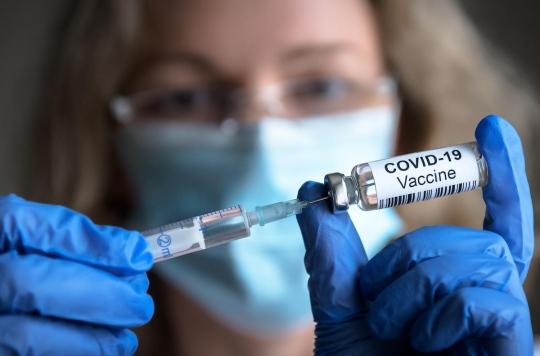The American laboratory hopes to be able to vaccinate adolescents “before the next school year”. Messenger RNA technology, also used by the manufacturer Moderna for its serum, also shows an ability to drastically reduce the risk of infection.

- Pfizer will study the effectiveness of its vaccine in the youngest aged 6 months to 11 years.
- The messenger RNA vaccines, Pfizer and Moderna, protect 90% against infections after the injection of the two doses and 80% after a single dose.
Are we going to vaccinate the children? If the question is not yet decided, the Pfizer and BioNTech laboratories ensure that their vaccine has maximum effectiveness in adolescents. This Wednesday, they announced the results of phase 3 clinical trials conducted on 2,260 young Americans between the ages of 12 and 15 that their serum has “demonstrated 100% efficacy and robust antibody responses”, they wrote in a statement.
Studies on children from 6 months to 11 years in progress
The two groups have indicated that they will now submit this data to the various regulatory authorities around the world. “hoping to start vaccinating this age group before the start of the next school year.” For the moment, vaccination is only authorized for people over 16 years old, in the United States and in the European Union.
The group has also announced that it is carrying out trials to study the effects of vaccination on the youngest. A first group of children aged 5 to 11 received the first doses of vaccine last week. A younger cohort of children aged 2 to 5 years are due to receive their first dose next week as part of the study which will also cover children aged 6 months to 2 years.
Pfizer and Moderna provide 90% protection against infections
In addition, vaccines that use messenger RNA technology, such as Pfizer and the one developed by Moderna, would drastically reduce the risk of infection in addition to avoiding serious forms of Covid-19. According to a study presented Monday, March 29 by the Centers of Disease Control and Preventionthe American health authorities, the number of infected with SARS-CoV-2 decreases considerably in vaccinated people, even after the injection of a single dose.
For this, they observed 3,950 volunteers, never contaminated, working in the field of health or in direct contact with the population, between December 14 and March 13. Among them, 2,479 received the two injections of the Pfizer or Moderna serums while 477 received only one dose and the remainder were not vaccinated. Each week, they all performed an RT-PCR test, regardless of their symptomatic status.
The results showed that the vaccines reduced the risk of infection by 90% after two doses and by 80% after a single injection. In the fully vaccinated population, that is to say fifteen days after the second dose, there were 0.04 infections per 1000 people. In the partially vaccinated population, that is to say fifteen days after the first dose, there were 0.19 infections per 1,000 people. Finally, in the unvaccinated population, there were 1.38 infections per 1,000 people.

.

















